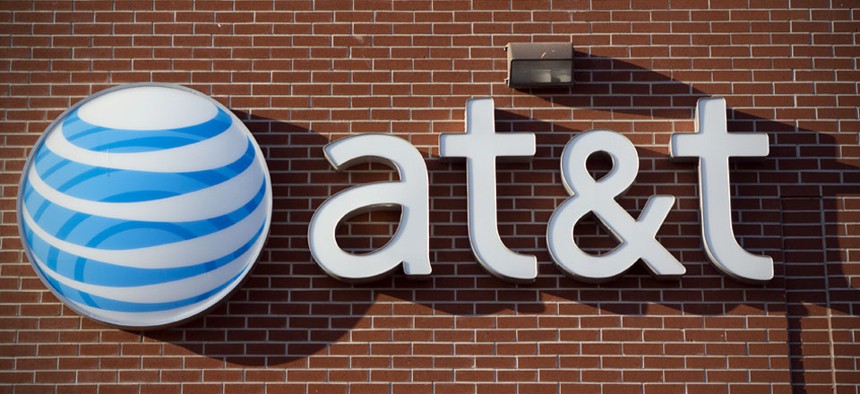AT&T Will Pay Millions in Refunds After Charging for Celebrity Gossip and Flirting Tips

Rob Wilson/Shutterstock
The company agreed to a $105 million settlement with state and federal regulators.
AT&T illegally placed millions of dollars in bogus charges on consumers' cell-phone bills, state and federal regulators said Wednesday.
The company agreed to a $105 million settlement with the Federal Communications Commission, the Federal Trade Commission, and attorneys general from all 50 states plus the District of Columbia. Consumers who believe they were over-billed can go to the FTC's website to apply for a refund.
"This $105 million settlement is going to put money back into the wallets of customers who were victimized," FCC Chairman Tom Wheeler said at a press conference announcing the settlement.
According to the government, AT&T charged customers for unwanted third-party services such as text messages of horoscopes, celebrity gossip, flirting tips, and "fun facts." The company took a cut of at least 35 percent on the services, which were typically about $9.99 per month, and did little to prevent the charges despite knowing they were bogus, the regulators claimed.
According to the government investigation, AT&T even tried to reassure the third parties in 2011 that it wouldn't provide full refunds to consumers.
The charges were buried in monthly bills, making it difficult or impossible for consumers to know they were even paying for them, the government said.
"Today's settlement, while focused on the fast-growing mobile industry, underscores a time-tested principle of consumer protection: consumers must not be charged for goods or services they did not authorize, whether on their mobile phone, shopping online, or in a brick-and-mortar store," FTC Chairwoman Edith Ramirez said.
Real text messages that cost customers $9.99 per month

Photos courtesy of the Federal Trade Commission
In a statement, AT&T said it had "rigorous protections in place" to prevent unwanted charges and noted that it discontinued the third-party billing system last year.
"Today, we reached a broad settlement to resolve claims that some of our wireless customers were billed for charges from third parties that the customers did not authorize," AT&T said. "This settlement gives our customers who believe they were wrongfully billed for [premium text message] services the ability to get a refund."
AT&T will pay $80 million to the FTC to distribute refunds to consumers, $20 million to the state governments, and a $5 million penalty to the U.S. Treasury.
Earlier this year, the Senate Commerce Committee released a report finding that third-party charges on cell-phone bills is a billion dollar industry, much of it fraudulent. In a statement, Commerce Committee Chairman Jay Rockfeller applauded the crack down on AT&T and urged regulators to stay vigilent. Self-regulation of the issue has failed, he said.
The FTC has brought numerous cases in recent years over "cramming"—the practice of placing unwanted charges on phone bills. But the government is only just beginning to go after the phone companies themselves and not the third-party scammers.
In July, the FTC accused T-Mobile of similarly billing customers for services it knew were bogus. T-Mobile, unlike AT&T, plans to fight the charges in court.
Wheeler hinted that he plans to go after more companies for overbilling. "Stay tuned," he said at the press conference.
Excerpts form an AT&T bill

( Image via Rob Wilson / Shutterstock.com )






